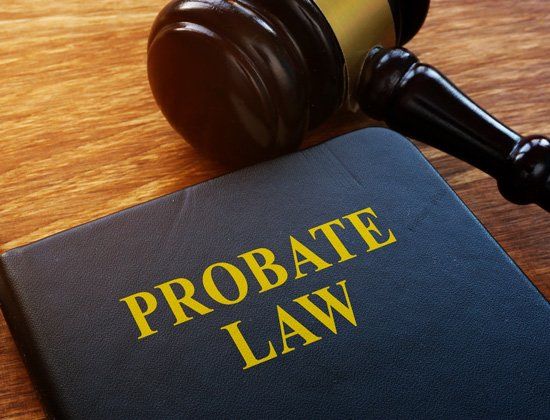By Bailee Boyd
•
March 30, 2023
When it comes to estate planning, creating legally valid documents, such as wills, trusts, and powers of attorney, is crucial to ensure that your assets are distributed according to your wishes upon your passing and that your healthcare and financial affairs are properly managed. In Texas, as in every state, there are specific legal formalities that must be adhered to when signing these estate planning documents. Failing to follow these formalities could render your documents invalid, leaving your estate to be distributed according to state intestacy laws, which may not align with your intentions, or making it difficult for your loved ones to manage your affairs during times of incapacity. In this comprehensive guide, we will delve into the intricacies of estate planning document signing formalities in the Lone Star State. Our aim is to equip you with the knowledge necessary to create legally sound estate planning documents that stand up to scrutiny and provide the peace of mind that your final wishes will be honored and your affairs properly managed. First though, you need to understand some legal terms of art: A testator is a person who makes and executes a will. A person who dies with a will is said to die testate , while a person who dies without a will is said to die intestate . A will is a legal document that outline's a person's wishes regarding the distribution of their assets, property, and care of any minor or disabled persons upon their death. A holographic will is a will that is written in the testator's handwriting and signed by the testator. A non-holographic will is a type-written will signed by the testator in the presence of two credible witnesses. Sometimes it will be self-proving, meaning it has a self-proving affidavit signed by the testator, witnesses, and a notary public. A trust is a legal arrangement (contract) in which one party, known as the grantor or settlor , transfers assets to another party, called the trustee , who holds and manages those assets for the benefit of one or more beneficiaries . Trusts can be established for various purposes, such as estate planning, asset protection, or providing financial support to minors or individuals with special needs. Trusts can be revocable , allowing the grantor to modify or terminate the trust during their lifetime, or irrevocable , which cannot be changed or terminated once established (although they sometimes can through decanting or court order). The trustee has a fiduciary duty to manage the trust assets in accordance with the terms of the trust document and in the best interests of the beneficiaries. A durable power of attorney (POA) is a legal document that allows an individual, known as the principal , to grant authority to another person, called the agent or attorney-in-fact , to make decisions and act on their behalf in financial, legal, and personal matters. The term " durable " means that the POA remains in effect even if the principal becomes incapacitated or mentally incompetent , unlike a general power of attorney , which would become invalid under those circumstances. A durable POA can be tailored to the principal's specific needs and preferences, granting either broad or limited powers to the agent. It can be effective immediately upon signing or become effective only upon the principal's incapacity, known as a " springing " durable power of attorney. A Physician's or Medical Directive is a written instrument where the declarant , the individual who makes and executes the directive, expresses their preferences and instructions regarding medical treatment and end-of-life care. The declarant specifies their wishes in the document to guide healthcare providers and appointed agents in making medical decisions on their behalf, particularly when the declarant becomes unable to communicate or make decisions due to illness or incapacity. A medical directive may include a living will , a durable power of attorney for healthcare , or a combination of both. Wills A non-holographic will must be signed by either the testator in person or by another person on behalf of the testator in the testator's presence and under the testator's direction. Additionally, a non-holographic will must be attested by at least two (2) credible witnesses who are at least 14 years of age and sign the will in their own handwriting in the testator's presence. A credible witness is a competent witness who receives no financial benefits under the will and is therefore competent to testify regarding the will's execution. A will is not automatically invalidated if a beneficiary or other interested person serves as a witness, but it could significantly affect any intended bequest to the witness. A gift in the will to a witness is void unless certain conditions are met, such as the witness being entitled to a share of the estate had the testator died intestate. On the other hand, a holographic will must be written entirely in the testator's handwriting and signed by the testator. A holographic will cannot be signed by another person on the testator's behalf and does not need to be attested by any subscribing witnesses. Despite being less formal, holographic wills can still be legally recognized in Texas as long as they meet the necessary requirements. There is no requirement for a will to be notarized in Texas unless the will is self-proved. A self-proving affidavit or simultaneous attestation is not required to make a valid will, but it will simplify the probate process and is a best practice among estate planning attorneys. Trusts In Texas, a trust can be created orally (in limited circumstances) or in writing (Tex. Prop. Code Ann. § 112.001). Unless the trust meets the limited exceptions for a valid oral trust, a trust is only enforceable if its terms are evidenced by a written instrument that is either: (1) Signed by the settlor or the settlor's authorized agent or (2) Created by the court. Texas law does not require a revocable trust instrument to be witnessed to be valid. Texas does not require a trust instrument to be notarized to be valid, but notarization is a best practice. If the trust may hold real property and need to be recorded in the real property records, you should have the trust acknowledged and notarized so the trust instrument can be recorded. Financial institutions also often require that trust instruments be written and notarized to avoid fraud. Durable Power of Attorney To be valid, the durable power of attorney instrument must be signed either by the adult principal, in the adult principal's conscious presence by another adult at the direction of the principal to sign the principal's name. Texas does not require the power of attorney to be witnessed. The power of attorney however must generally be acknowledged by the principal before a notary public. Medical Power of Attorney To be valid, a medical power of attorney instrument must be signed by the adult principal. If the adult principal cannot sign, it can be signed in the adult principal's presence by another person at the direction of the principal to sign the principal's name. The principal's signature must be either made in the presence of two witnesses or in the presence of and acknowledged by a notary public. Physician's or Medical Directive The declarant must sign the directive to physicians. The declarant's signature must be either made in the presence of two witnesses or in the presence of and acknowledged by a notary public. HIPAA Release The principal must sign and date the HIPAA release. Other people, referred to as personal representatives under the HIPAA regulations, sometimes may sign the HIPAA release on the individual's behalf. These people include the health care agent or agent for an adult or emancipated minor, the parent or guardian of an unemancipated minor in some situations, the fiduciary in charge of a deceased individual's estate. Witnesses are not required for a valid HIPAA release, and neither is a notary. Can you sign estate planning documents with an electronic signature? Texas has adopted the Uniform Electronic Transfers Act (UTEA). The UETA authorizes electronic signatures for certain transactions. A transaction is defined as "an action or set of actions occurring between two or more persons relating to the conduct of business, commercial, or governmental affairs. However, the UETA does not apply to laws governing the creation and execution of wills, codicils, or testamentary trusts, and is generally understood to not apply to other documents executed with an estate plan (such as powers of attorney and advance health care directives) because these types of documents are typically not related to a transaction as defined under the UETA. What about witness signatures? Wills, trusts, powers of attorney, and advance health care directives generally cannot be witnessed electronically in Texas. There is an exception for Advance Directives Not Prepared by Attorney. Advance health care directives in Texas can be signed, witnessed, and notarized electronically in certain circumstances. These electronic executions are specifically authorized under the Texas Health and Safety Code, not the Texas UETA, and include various restrictions that prevent most attorneys from recommending that clients execute these instruments electronically. What about remote notarization? Texas law permits notaries to conduct notarizations remotely, as authorized by a statute. According to the statute, an individual may "personally appear" before a notary using a two-way audio and video communication system, as long as it adheres to the procedures established by the Secretary of State. Nonetheless, the statute's wording implies that online notaries are only allowed to notarize electronic signatures . Since the Texas Uniform Electronic Transactions Act does not authorize testators to sign wills and codicils electronically, it is not possible to notarize wills online in Texas. In conclusion, navigating the complexities of estate planning and ensuring that your will and other essential documents are legally valid is crucial for safeguarding your assets and fulfilling your final wishes. Understanding the specific requirements for signing wills, trusts, durable powers of attorney, and medical directives in Texas can provide peace of mind and help you create a solid estate plan. By adhering to the state's guidelines and seeking professional advice, you can ensure that your will and other documents will stand up to scrutiny and protect your family's future. As you embark on this important journey, remember that knowledge is power. This guide has provided you with an overview of the legal formalities and processes involved in creating and executing wills and other estate planning documents in Texas. Armed with this information, you can confidently take the necessary steps to secure your legacy and provide for your loved ones. Estate planning is an ongoing process, so be sure to review and update your documents periodically to account for any changes in your life or the law. Contact us at Bradley & Hammond for a consultation if you have any questions. Have more questions about estate planning? Check out our blog for more helpful information, or visit our estate planning page.











